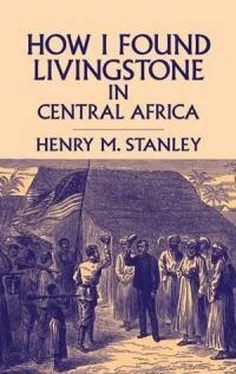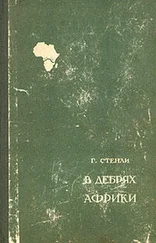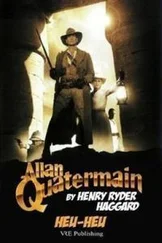Генри Стенли - How I Found Livingstone
Здесь есть возможность читать онлайн «Генри Стенли - How I Found Livingstone» весь текст электронной книги совершенно бесплатно (целиком полную версию без сокращений). В некоторых случаях можно слушать аудио, скачать через торрент в формате fb2 и присутствует краткое содержание. Год выпуска: 1872, Жанр: Биографии и Мемуары, на английском языке. Описание произведения, (предисловие) а так же отзывы посетителей доступны на портале библиотеки ЛибКат.
- Название:How I Found Livingstone
- Автор:
- Жанр:
- Год:1872
- ISBN:нет данных
- Рейтинг книги:5 / 5. Голосов: 1
-
Избранное:Добавить в избранное
- Отзывы:
-
Ваша оценка:
- 100
- 1
- 2
- 3
- 4
- 5
How I Found Livingstone: краткое содержание, описание и аннотация
Предлагаем к чтению аннотацию, описание, краткое содержание или предисловие (зависит от того, что написал сам автор книги «How I Found Livingstone»). Если вы не нашли необходимую информацию о книге — напишите в комментариях, мы постараемся отыскать её.
How I Found Livingstone — читать онлайн бесплатно полную книгу (весь текст) целиком
Ниже представлен текст книги, разбитый по страницам. Система сохранения места последней прочитанной страницы, позволяет с удобством читать онлайн бесплатно книгу «How I Found Livingstone», без необходимости каждый раз заново искать на чём Вы остановились. Поставьте закладку, и сможете в любой момент перейти на страницу, на которой закончили чтение.
Интервал:
Закладка:
I have skimmed over my travels thus far, because these do not concern the reader. They led over many lands, but this book is only a narrative of my search after Livingstone, the great African traveller. It is an Icarian flight of journalism, I confess; some even have called it Quixotic; but this is a word I can now refute, as will be seen before the reader arrives at the "Finis."
I have used the word "soldiers" in this book. The armed escort a traveller engages to accompany him into East Africa is composed of free black men, natives of Zanzibar, or freed slaves from the interior, who call themselves "askari," an Indian name which, translated, means "soldiers." They are armed and equipped like soldiers, though they engage themselves also as servants; but it would be more pretentious in me to call them servants, than to use the word "soldiers;" and as I have been more in the habit of calling them soldiers than "my watuma"-servants-this habit has proved too much to be overcome. I have therefore allowed the word "soldiers " to appear, accompanied, however, with this apology.
But it must be remembered that I am writing a narrative of my own adventures and travels, and that until I meet Livingstone, I presume the greatest interest is attached to myself, my marches, my troubles, my thoughts, and my impressions. Yet though I may sometimes write, "my expedition," or "my caravan," it by no means follows that I arrogate to myself this right. For it must be distinctly understood that it is the "`New York Herald' Expedition," and that I am only charged with its command by Mr. James Gordon Bennett, the proprietor of the `New York Herald,' as a salaried employ of that gentleman.
One thing more; I have adopted the narrative form of relating the story of the search, on account of the greater interest it appears to possess over the diary form, and I think that in this manner I avoid the great fault of repetition for which some travellers have been severely criticised.
CHAPTER II
ZANZIBAR.
On the morning of the 6th January, 1871, we were sailing through the channel that separates the fruitful island of Zanzibar from Africa. The high lands of the continent loomed like a lengthening shadow in the grey of dawn. The island lay on our left, distant but a mile, coming out of its shroud of foggy folds bit by bit as the day advanced, until it finally rose clearly into view, as fair in appearance as the fairest of the gems of creation. It appeared low, but not flat; there were gentle elevations cropping hither and yon above the languid but graceful tops of the cocoa-trees that lined the margin of the island, and there were depressions visible at agreeable intervals, to indicate where a cool gloom might be found by those who sought relief from a hot sun. With the exception of the thin line of sand, over which the sap-green water rolled itself with a constant murmur and moan, the island seemed buried under one deep stratum of verdure.
The noble bosom of the strait bore several dhows speeding in and out of the bay of Zanzibar with bellying sails. Towards the south, above the sea line of the horizon, there appeared the naked masts of several large ships, and to the east of these a dense mass of white, flat-topped houses. This was Zanzibar, the capital of the island;-which soon resolved itself into a pretty large and compact city, with all the characteristics of Arab architecture. Above some of the largest houses lining the bay front of the city streamed the blood-red banner of the Sultan, Seyd Burghash, and the flags of the American, English, North German Confederation, and French Consulates. In the harbor were thirteen large ships, four Zanzibar men-of-war, one English man-of-war-the `Nymphe,' two American, one French, one Portuguese, two English, and two German merchantmen, besides numerous dhows hailing from Johanna and Mayotte of the Comoro Islands, dhows from Muscat and Cutch-traders between India, the Persian Gulf, and Zanzibar.
It was with the spirit of true hospitality and courtesy that Capt. Francis R. Webb, United States Consul, (formerly of the United States Navy), received me. Had this gentleman not rendered me such needful service, I must have condescended to take board and lodging at a house known as "Charley's," called after the proprietor, a Frenchman, who has won considerable local notoriety for harboring penniless itinerants, and manifesting a kindly spirit always, though hidden under such a rugged front; or I should have been obliged to pitch my double-clothed American drill tent on the sandbeach of this tropical island, which was by no means a desirable thing.
But Capt. Webb's opportune proposal to make his commodious and comfortable house my own; to enjoy myself, with the request that I would call for whatever I might require, obviated all unpleasant alternatives.
One day's life at Zanzibar made me thoroughly conscious of my ignorance respecting African people and things in general. I imagined I had read Burton and Speke through, fairly well, and that consequently I had penetrated the meaning, the full importance and grandeur, of the work I was about to be engaged upon. But my estimates, for instance, based upon book information, were simply ridiculous, fanciful images of African attractions were soon dissipated, anticipated pleasures vanished, and all crude ideas began to resolve themselves into shape.
I strolled through the city. My general impressions are of crooked, narrow lanes, white-washed houses, mortar-plastered streets, in the clean quarter;-of seeing alcoves on each side, with deep recesses, with a fore-ground of red-turbaned Banyans, and a back-ground of flimsy cottons, prints, calicoes, domestics and what not; or of floors crowded with ivory tusks; or of dark corners with a pile of unginned and loose cotton; or of stores of crockery, nails, cheap Brummagem ware, tools, &c., in what I call the Banyan quarter;-of streets smelling very strong-in fact, exceedingly, malodorous, with steaming yellow and black bodies, and woolly heads, sitting at the doors of miserable huts, chatting, laughing, bargaining, scolding, with a compound smell of hides, tar, filth, and vegetable refuse, in the negro quarter;-of streets lined with tall, solid-looking houses, flat roofed, of great carved doors with large brass knockers, with baabs sitting cross-legged watching the dark entrance to their masters' houses; of a shallow sea-inlet, with some dhows, canoes, boats, an odd steam-tub or two, leaning over on their sides in a sea of mud which the tide has just left behind it; of a place called "M'nazi-Moya," "One Cocoa-tree," whither Europeans wend on evenings with most languid steps, to inhale the sweet air that glides over the sea, while the day is dying and the red sun is sinking westward; of a few graves of dead sailors, who paid the forfeit of their lives upon arrival in this land; of a tall house wherein lives Dr. Tozer, "Missionary Bishop of Central Africa," and his school of little Africans; and of many other things, which got together into such a tangle, that I had to go to sleep, lest I should never be able to separate the moving images, the Arab from the African; the African from the Banyan; the Banyan from the Hindi; the Hindi from the European, &c.
Zanzibar is the Bagdad, the Ispahan, the Stamboul, if you like, of East Africa. It is the great mart which invites the ivory traders from the African interior. To this market come the gum-copal, the hides, the orchilla weed, the timber, and the black slaves from Africa. Bagdad had great silk bazaars, Zanzibar has her ivory bazaars; Bagdad once traded in jewels, Zanzibar trades in gum-copal; Stamboul imported Circassian and Georgian slaves; Zanzibar imports black beauties from Uhiyow, Ugindo, Ugogo, Unyamwezi and Galla.
The same mode of commerce obtains here as in all Mohammedan countries-nay, the mode was in vogue long before Moses was born. The Arab never changes. He brought the custom of his forefathers with him when he came to live on this island. He is as much of an Arab here as at Muscat or Bagdad; wherever he goes to live he carries with him his harem, his religion, his long robe, his shirt, his slippers, and his dagger. If he penetrates Africa, not all the ridicule of the negroes can make him change his modes of life. Yet the land has not become Oriental; the Arab has not been able to change the atmosphere. The land is semi-African in aspect; the city is but semi-Arabian.
Читать дальшеИнтервал:
Закладка:
Похожие книги на «How I Found Livingstone»
Представляем Вашему вниманию похожие книги на «How I Found Livingstone» списком для выбора. Мы отобрали схожую по названию и смыслу литературу в надежде предоставить читателям больше вариантов отыскать новые, интересные, ещё непрочитанные произведения.
Обсуждение, отзывы о книге «How I Found Livingstone» и просто собственные мнения читателей. Оставьте ваши комментарии, напишите, что Вы думаете о произведении, его смысле или главных героях. Укажите что конкретно понравилось, а что нет, и почему Вы так считаете.












